Resources
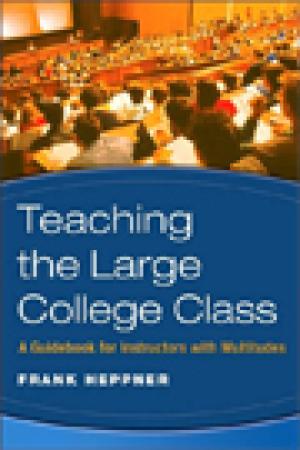
Teaching large classes is a fact of life for professors at many institutions. In addition to pedagogy, instructors of these courses must also be concerned with legal, ethical, financial, technological, personnel, and management issues. Virtually all introductory courses are large ones, as are the popular intermediate courses at large institutions. Typically, little or no training or instruction is provided to new professors about how to manage large classes successfully. This book is a valuable resource for any college teacher, adjunct or full-time, facing a large class. It will also be useful for college administrators who might want to issue it to teachers, especially adjuncts, assigned to large classes for the first time. A distillation of years of experience by the authorwho started his college teaching career in 1969in teaching large classes and in coaching other professors to do the same, this guide is concise and user-friendly. It employs teaching-as-acting as a common theme, with many practical examples covering all of the major aspects of organizing, managing, and teaching a large lecture course in any field. (From the Publisher)
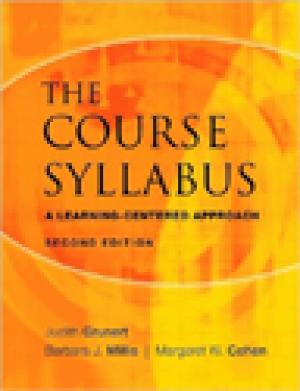
When it was first published in 1997, The Course Syllabus became the gold standard reference for both new and experienced college faculty. Like the first edition, this book is based on a learner-centered approach. Because faculty members are now deeply committed to engaging students in learning, the syllabus has evolved into a useful, if lengthy, document. Today's syllabus provides details about course objectives, requirements and expectations, and also includes information about teaching philosophies, specific activities and the rationale for their use, and tools essential to student success. (From the Publisher)
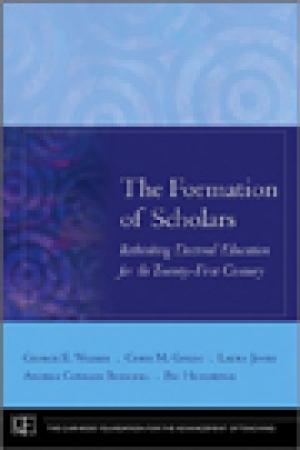
This groundbreaking book explores the current state of doctoral education in the United States and offers a plan for increasing the effectiveness of doctoral education. Programs must grapple with questions of purpose. The authors examine practices and elements of doctoral programs and show how they can be made more powerful by relying on principles of progressive development, integration, and collaboration. They challenge the traditional apprenticeship model and offer an alternative in which students learn while apprenticing with several faculty members. The authors persuasively argue that creating intellectual community is essential for high-quality graduate education in every department. Knowledge-centered, multigenerational communities foster the development of new ideas and encourage intellectual risk taking. (From the Publisher)
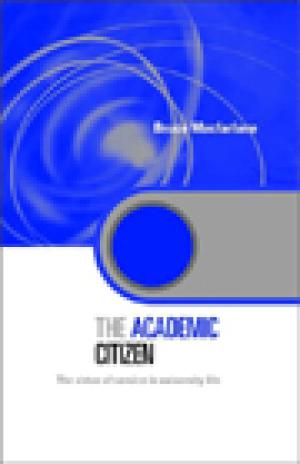
Contemporary universities are very much an integral part of communities. However, while much has been written about teaching and research in universities, the "service" role of universities has been neglected. In an attempt to address this imbalance, The Academic Citizen looks at how these three roles interrelate and explores the idea of a compact between universities and society. This book argues that in order to achieve a compact, we need to re-evaluate the poorly rewarded aspects of service and leading academics need to set a new standard. Based on in-depth interviews with an international group of academics, it sets out to: · outline the interconnecting communities served by university lecturers · explore what the notion of "service" means for academic staff · develop a moral basis for the "service" role in academic life as both a collegial and civic duty · show how service supports teaching and research in a more competitive environment ·examine the ideal character required to fulfill the functions academic citizenship Drawing on a range of university and service traditions, The Academic Citizen has a strong historical and comparative perspective that should prove stimulating for those interested in the role of the academic in modern society. It has international relevance and will appeal to staff and educational developers in universities and colleges, as well as students of higher education. (From the Publisher)

An examination of the history of American Protestant theological education which focusses on aims and purposes and how (if at all) those ideals were incarnated in particular schools. (From the Publisher)

A series of reflections on this period in theological education. (From the Publisher)
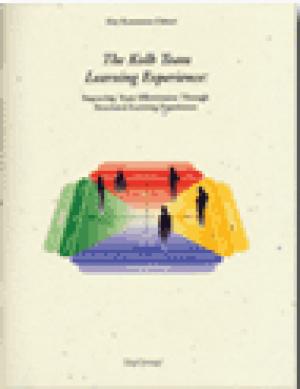
The Kolb Team Learning Experience (TLE) will guide a team through a cycle of learning - providing the team with opportunities to experience, reflect and do. Each module provides the team with: * an introduction to an important team-related concept * an opportunity to reflect on what the concept means for them as an individual team member * time to discuss what it means for them as a team * the chance for the team to experiment with what they have learned (From the Publisher)

Gives an abundance of practical advice on how active learning techniques can be used by teachers across the disciplines. Using real-life examples, the authors discuss how various small-group exercises, simulations, and case studies can be blAnded with the technological and human resources available outside the classroom. The book is engagingly written for all classroom teachers. (From the Publisher)
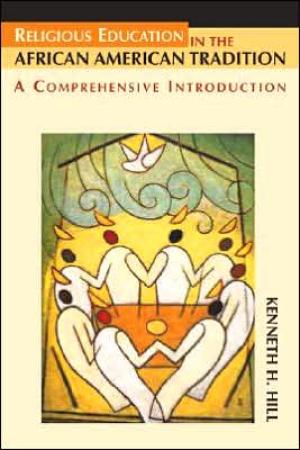
Hill indicates that the seeds for this writing project were first sown in the context of an ecumenical leadership event for church educators sponsored by the National Council of Churches, USA. The Black Church and the whole ecumenical community are now the beneficiaries of the fruit of his labors of love that began back then and even before. This compendium effectively weds the theologies and pedagogies that have served well faith formation in the African American church context, setting the framework for the teaching challenges which face the contemporary church. This work will serve as foundational for those whose passion, academic interest and calling are found in the educational ministry of the church. (From the Publisher)
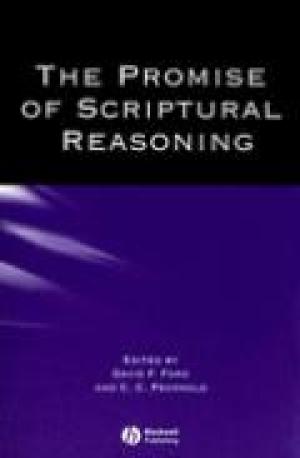
In 'scriptural reasoning', Jews, Christians and Muslims study their scriptures in conversation with one another. This innovative practice brings core identities into deep engagements with one another by returning to the sacred texts that give rise to their differences and their family resemblances. 'Scriptural reasoning' enables these differences, and agreements, to be worked through in a collegial context. It has already begun to produce fresh approaches to one of the great issues of the 21st century: how can the Abrahamic faiths understand each other and live together in peace?In this book, twelve contributors distil their critical and constructive thinking on 'scriptural reasoning' after nearly a decade of study and discussion. Their reflections range from introductory accounts and guidelines for the practice to literary-critical discussions and interpretations of texts. Several chapters draw on contemporary philosophies, such as pragmatism, phenomenology, and idealism. A critical conclusion invites readers to reflect on the promise of 'scriptural reasoning'. (From the Publisher)